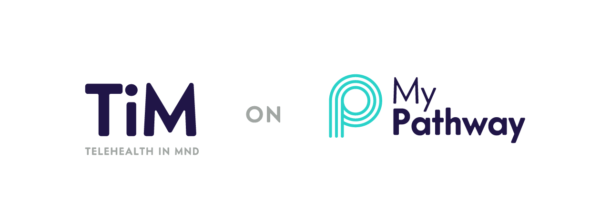Ground-breaking app improves quality of life for MND patient

A Lincolnshire woman who suffers with motor neuron disease is praising the impact a new digital app has had on her quality of life.
Former nurse and clinical services manager, Rachel Jones, 58, says the app, developed by leading clinicians and scientists at Sheffield Teaching Hospitals NHS Foundation Trust, The University of Sheffield and technology firm ADI, has helped her better manage her individual care needs during the coronavirus pandemic.
“Motor neuron disease is a terrible, muscle-wasting disease that leaves patients unable to do the simplest of tasks, such as eating, walking and talking. The emotional and psychological effects can also be extremely difficult to deal with. Not only is this app helping to improve the quality of life for a highly vulnerable group of patients, but it is also helping them to stay connected with their specialist motor neuron disease care team without having to travel long distances both during and beyond the pandemic.” Professor Chris McDermott, Consultant Neurologist at Sheffield Teaching Hospitals and Professor of Translational Neurology at the University of Sheffield.
The technology has been integrated into MyPathway, a software platform for remote specialist healthcare, built by West Yorkshire technology firm ADI Health. It enables patients and their carers to answer a series of pre-loaded questionnaires on a weekly basis about their health, giving clinicians real time data on how they are progressing. They can also get help and advice on how to manage their condition and access troubleshooting advice for the medical equipment they have to help manage their symptoms at home.
“This is a fantastic example of how a unique partnership between health technology companies and the NHS can work together to offer innovative solutions to care during and beyond the current pandemic.” John Eaglesham, Chief Executive for ADI Health
Motor neuron disease is an incurable illness, leading to muscle wastage and loss of control of movement, speech and breathing.
For Rachel, who was diagnosed with the condition five years ago, the debilitating condition has left her with weakness in her hands and legs. She also struggles to breathe without the support of a specialist breathing machine.
As one of only 22 centres of excellence for motor neuron disease, Rachel used to regularly make the extended journey to Sheffield’s Royal Hallamshire Hospital to access her long-term follow-up care.
But the COVID-19 outbreak meant that Rachel, and other highly vulnerable patients with her condition, were at greater risk of suffering from the ill effects of the virus.
With the launch of the new digital app already scheduled for late 2020, clinicians and scientists from Sheffield Teaching Hospitals and the University of Sheffield worked with ADI to fast-track the app so that patients could access support remotely straight away, minimising their COVID-19 risk and supporting them to manage their own care needs at home without the need for a long-distance journey.
“It makes such a difference,” said Rachel. “I was waking up in the morning with a fuzzy head and feeling unbalanced. But thanks to the online system the specialist team at Sheffield worked out that the flow on my breathing machine needed revising. I was sent a different mask and a new bit of computer hardware. Within a matter of weeks it completely changed how I was feeling. I live just outside Lincoln so it’s an hour and half each way to get to Sheffield, plus there’s the time it takes to have your appointment, whereas with the app I get sent the questionnaire and I can complete it in my own time. Before it was a long, tiring day, especially as fatigue is one of the big things I battle with, but the app makes it really easy. My husband also managed to access a carer’s assessment. It’s been absolutely fantastic.”
